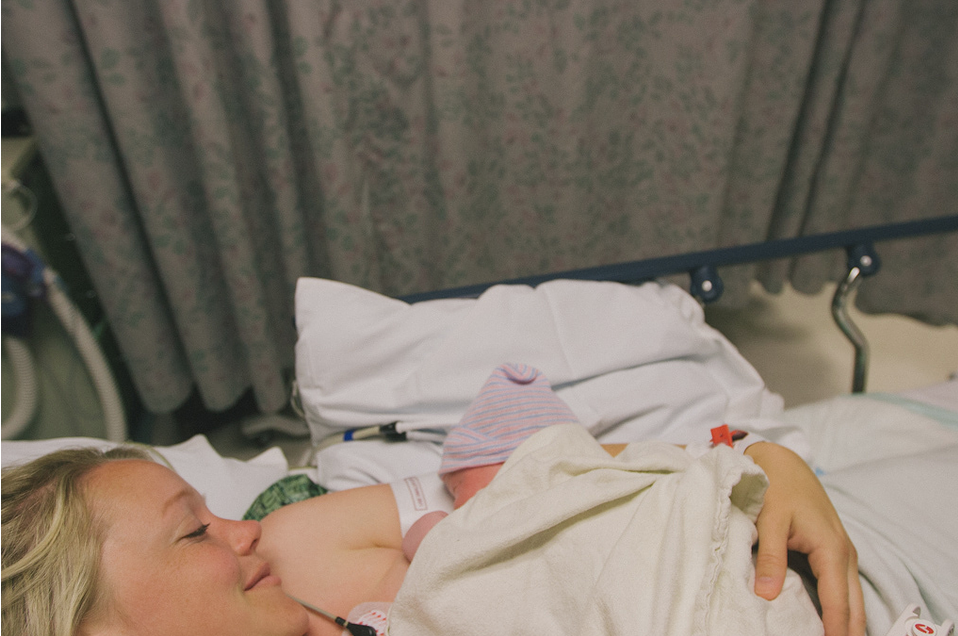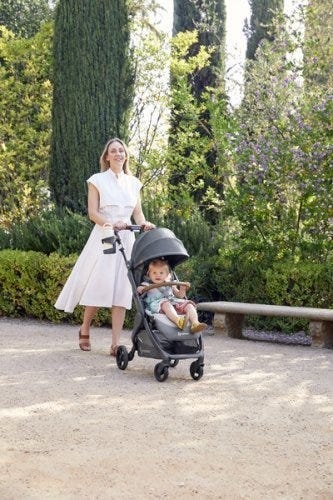
What exactly is a doula? While there are people who have heard of doulas, there are just as many who will ask me to repeat myself as if I was speaking a foreign language. In a way, they are right. The word doula comes from the Ancient Greek word doulē meaning “woman’s servant.” Although at the time it was more of a servant position, the name has come to mean something very special. In the past 20 years doulas and midwives have reemerged to become a very important part of the birth process for many women. In fact, currently the use of Doulas has more than tripled in the U.S., as parents have seen how beneficial it is to have a Doula be a support system, most especially during labor. A doula is a labor assistant, hired to give continuous care to the pregnant woman and her partner before, during and after childbirth. She is not a doctor or a nurse or even a midwife. A midwife is a medically trained person who has acquired the requisite qualifications to be registered and/or legally licensed to practice midwifery. The doula does not take the place of a nurse. One of the most important roles the doula has is to be there continuously throughout the labor and delivery. Nurses are certainly willing and able to be birth assistants, but, during most hospital births today, they are simply not able, due to work load and time constraints, to provide continuous 100% support. The doula is also not there to take the place of the birth partner or husband. In fact, she is often hired to support and encourage both partners. The ability for the birth partner or coach to have a break is much appreciated by families choosing to have a doula. For example, if a woman is experiencing back labor, she often finds a great deal of relief from constant hand pressure to the hips and lower back. This is almost impossible to keep up for long periods of time, and is just one example of how helpful an extra pair of hands can be. Mostly though, doulas are hired for their calm, experienced encouragement and support. Most women say that that was the best part of having a doula. One woman, from New Jersey, summed it up by saying: “I felt loved, cared for, almost honored in my role as a birthing woman, it was fantastic.” Another woman, Christy said, “My husband was great, I couldn’t have done it without him, but just having another woman there made me feel much more confident.” These are not unusual remarks. We are in a new time: this is the first generation of men who have even been invited in such numbers to the birthing room, much less being asked to have an active role. Women for centuries have always been the part of labor and birth. The outdated, “medically managed, no men in the room except for the Doctor model,” is happily a thing of the past. Having a woman present can have a tremendous effect on how mothers cope with their childbirth experience. There is something very powerful about being reminded of the women who have come before you and who have birthed their babies in the same way since time began. Having a doula present is in some way a reminder of this ancient ritual, and has been shown to have a very positive influence on the birthing mother. In fact, statistics prove that having a doula can bring more than just comfort. In general, requests for epidurals are reduced, as are cesarean rates, analgesia use and forceps delivery. Across the board, the most significant findings show that women who had a doula reported that they had a more positive birth experience and were able to bond quickly with their babies. A positive birth experience can greatly effect how a woman feels about herself and her baby. If she feels empowered, she will leave the experience more confident and secure in her new role. Moving into motherhood is one of the most important transitions a woman will ever experience. All along the way she has taken an active role in this process and the doula is hired to facilitate that process, not to lead it. An experienced doula knows that she is there to support the woman’s decisions whatever they may be. In the months before the birth the doula meets with the pregnant woman and family to go over the details and choices that the woman feels comfortable with. If she wants the doula to encourage her to have a medicine-free birth then that is what the doula will do. If the woman is not sure and thinks she might want the option of an epidural or other medicinal support, then the doula is there to help with that too. A doula is not a judge insisting on a “natural birth.” She is there to support, encourage and help ensure a positive birth. Most importantly, a doula should leave you with the empowered feeling that you did it. You birthed your baby and you are ready to take on the most important, amazing role of your life, motherhood.
Hiring a Doula
While there are no state licensing requirements for doulas, many have been trained by certifying organizations such as DONA, Childbirth International, and many others. Fees vary but are usually between $300 and $3,000. Some important questions to ask potential doulas are:
- What is your training?
- Can you tell me a bit about your experience with childbirth and work as a doula?
- What is your philosophy about childbirth?
- What role do you intend to play in the birth room?
- At what point do you come to us? Do you meet us at home or at the hospital?
- Do you meet with us after the birth? What are you willing to do?
- Do you work with any other doulas in case you're not available? May we meet with them?
- What is your fee?
Books that I have loved
Spiritual Midwifery, by Ina May Gaskin After the Baby’s Birth: A Woman’s Way to Wellness, by Robin Lim
Some Additional Resources
DONA, International Childbirth and Postpartum Professional Association (CAPPA) BirthWorks, International
Emotional Benefits of Getting Outside
Spending time in nature with your baby can strengthen the bond between you. The simple act of holding your baby close, feeling their warmth, and sharing new experiences together can create strong emotional connections. It’s also a wonderful way to reduce stress and improve your mood. When my littles were extra fussy, I’d take a walk around the neighborhood. Even though I don't live in an area with trails and surrounded by nature, simply behind outside changed everything. A little vitamin D does wonders!
Cognitive Development
Nature is a sensory wonderland for babies. The different sights, sounds, and smells can stimulate your baby’s senses and promote cognitive development. Watching leaves rustle, hearing birds chirp, and feeling the texture of a tree bark can all contribute to their learning and development.
All About Baby Carriers for Nature Adventures
Choosing the Right Baby Carrier
When it comes to selecting the best baby carrier for summer adventures, there are several options to consider.
Types of Baby Carriers:
- Wraps: Perfect for newborns, providing a snug and secure fit.
- Slings: Ideal for quick and easy use, offering good ventilation.
- Soft Structured Carriers: Versatile and comfortable for both parent and baby, suitable for longer trips.
Factors to Consider:
- Baby’s Age and Weight: Ensure the carrier is appropriate for your baby’s size and weight. For example, Ergobaby’s Embrace Newborn Carrier is perfect for the fourth trimester where baby is small and you’re looking for an easy way to stay close. As they grow, you’ll want to upgrade to an all-position carrier that’s meant for growing babies.
- Parent’s Comfort and Ergonomics: Look for carriers with padded shoulder straps and lumbar support if you’re planning on longer outings.
- Ease of Use: Choose a carrier that is easy to put on and take off.
- Climate and Breathability: Opt for carriers made of breathable fabrics to keep you and your baby cool in hot weather.
Safety Tips:
- Proper Positioning: Ensure your baby is seated correctly, with their legs in an "M" position and their head should be close enough to kiss.
- Checking for Wear and Tear: Regularly inspect your carrier for any signs of damage.
- Ensuring Adequate Support: Make sure the carrier provides proper support for your baby’s head and neck.
Exploring Nature with a Baby Carrier
Ideal Spots for a Nature Walk with Baby
- Parks and Gardens: Great for leisurely walks and picnics.
- Nature Trails and Forests: Perfect for more adventurous outings.
- Beaches and Lakesides: Wonderful for enjoying the water and sand, with the right carrier.
Activity Ideas
- Hiking: Enjoy a scenic hike with a hiking baby carrier that offers support and storage.
- Bird Watching: Use your carrier to keep your baby close while you explore and observe wildlife.
- Picnics: A carrier can free up your hands, making it easier to carry picnic supplies.


Advantages of Using Strollers for Nature Adventures


While baby carriers are fantastic for mobility and closeness, depending on the adventure of choice you might want to be a stroller along too.
There are a LOT of baby stroller options on the market. So we understand how confusing it can be to choose the one that’s right for your family. Not only are there a variety of brands, but a variety of strollers that serve different purposes.
There are a few types of strollers on the market:
- Full-sized stroller: This is typically the stroller parents thing of buying for all its versatility.
- Lightweight or umbrella stroller:These compact strollers are perfect for on-the-go adventures.
- Jogging stroller: Designed for parents who want to combine fitness with outdoor adventures.
- Double stroller: Designed for parents with multiple kids, especially twins.
- Car seat carrier: These strollers connect to a specific car seat. We don't typically recommend these as they can be unsafe for baby and uncomfortable for parents who are pushing.
Learn more about the types of strollers and which one would be best for you.
Benefits of Bringing a Stroller
- Storage Space for Gear: Ample room for carrying all your essentials like a diaper bag, beach toys and more.
- Shade and Weather Protection: Built-in canopies to shield your baby from the sun when they are lounging.
- Options: If you have more than one kid, you can stroll with one and carry the other. Or, if you’re getting warm or your little one is getting fussy, you can switch up their position from stroller to carrier or vice versa.
Safety Tips for Strollers
- Ensure your stroller is in good working condition. Make sure buckles are still buckling and that there are no rips or holes that could compromise your baby’s safety.
- Use sunshades or bug nets to protect your little one’s skin.
- Securing the baby properly: always buckle up your baby for safety even if you think they are old enough to go without the buckle.
Combining Baby Carriers and Strollers
For the ultimate flexibility, consider using both a baby carrier and a stroller on your outings.
Combining both options allows you to adapt to different situations. Use the carrier for more rugged trails and switch to the stroller for smoother paths or when your baby needs a nap.
Transition Tips
- Smooth Transitions: Plan stops where you can easily switch from carrier to stroller.
- Pack Light: Only bring essentials to make transitions easier.
Tips for a Successful Adventure
Planning Ahead
- Route Planning: Choose baby-friendly trails and parks. Check local mom groups or outdoor groups and get recommendations for the best outings for kids.
- Check Weather Conditions: Avoid extreme heat or unpredictable weather. Even with our most breathable carriers, when it’s hot, it’s hot. And having two bodies against each other in the heat will be naturally hot and sticky already.
- Packing Checklist: Include diapers, snacks, water, sunscreen, and a first-aid kit. These all-position carriers have storage pockets where you can fit some of the items easily!
- Stay Hydrated and Nourished: Pack healthy snacks to keep energy levels up and bring plenty of water for both you and baby.


Summer adventures with your baby are a wonderful way to create lasting memories and enjoy the beauty of nature together. From baby carriers to strollers, Ergobaby products are designed to provide comfort and ease for both you and your little one. So, gear up, get outside, and explore the world with your baby by your side.
Ready to embark on your own summer adventures? Check out Ergobaby’s range of baby carriers and strollers to find the perfect match for your family’s needs. Visit our website today and start planning your next outdoor excursion!



























